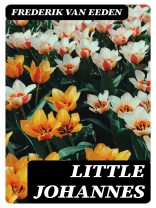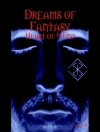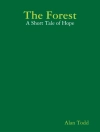In ‚Little Johannes, ‚ Frederik van Eeden weaves a rich tapestry of childhood innocence and existential contemplation through the eyes of a young boy, Johannes. The narrative is characterized by its lyrical prose and vivid imagery, invoking the charm and complexities of early life. Set against the backdrop of late 19th-century Dutch society, the novella delves into themes of imagination, spirituality, and the unadulterated quest for truth. Van Eeden employs Impressionistic techniques, creating a fluid narrative that mirrors the capriciousness of a child’s thoughts and experiences, ultimately inviting readers to reflect on the interplay between innocence and the demands of adult reality. Frederik van Eeden, a prominent figure in the Dutch literary movement, was not only a novelist but also a psychiatrist and social reformer. His background provided him with unique insights into the human psyche, allowing him to portray the struggles of young Johannes with empathy and depth. Van Eeden’s desire to explore the inner workings of the mind and society’s expectations is deeply embedded in his narrative, showcasing his commitment to addressing the human condition. This novella is highly recommended for readers seeking a profound exploration of childhood and its philosophical implications. ‚Little Johannes‘ not only captivates with its poetic style but also challenges readers to reconsider their understanding of innocence, making it an essential addition to the literary canon.
Über den Autor
Frederik van Eeden was a Dutch writer, poet, and psychiatrist, whose versatile literary endeavors and lasting influence make him a significant figure in Dutch literature. Born on April 3, 1860, in Haarlem, Netherlands, van Eeden derived from a family with an intellectual heritage. He initially pursued a career in medicine but soon shifted his focus to literature and psychology, a combination that would color his creative output. Van Eeden’s most renowned work, ‚De Kleine Johannes‘ or ‚Little Johannes‘ (1887), reflects a blend of fantasy and reality, an exploration of the themes of innocence and experience that resonates with an allegorical richness akin to a fairy tale. This pivotal novel occupies a crucial place in Dutch Symbolist literature, revealing van Eeden’s preoccupation with the inner lives of his characters and a quest for personal and social utopia. His literary style often exhibits a sense of introspection and idealism, striving to reconcile individual aspirations with societal norms. Beyond ‚Little Johannes‘, van Eeden’s oeuvre includes a spectrum of plays, novels, and essays, and he was also a co-founder of the influential literary journal ‚De Nieuwe Gids‘ in 1885. His profound interest in human consciousness and societal reform is evident throughout his works, which continue to be studied for their psychological depth and visionary aspirations. Frederik van Eeden passed away on June 16, 1932, leaving behind a body of work that continues to elicit scholarly interest and debate.












